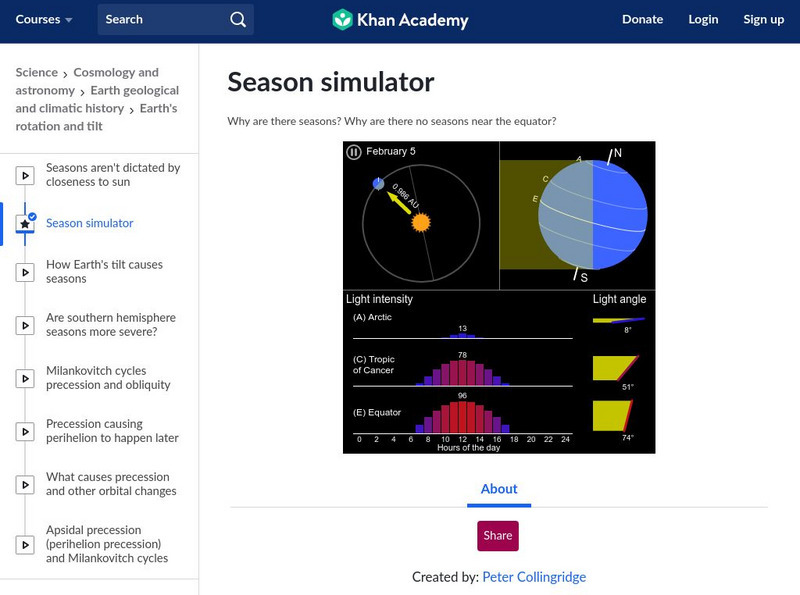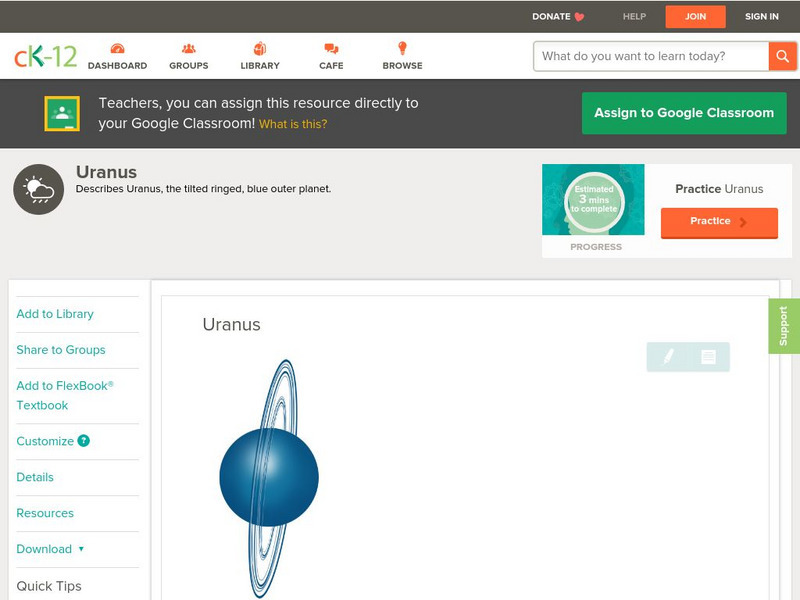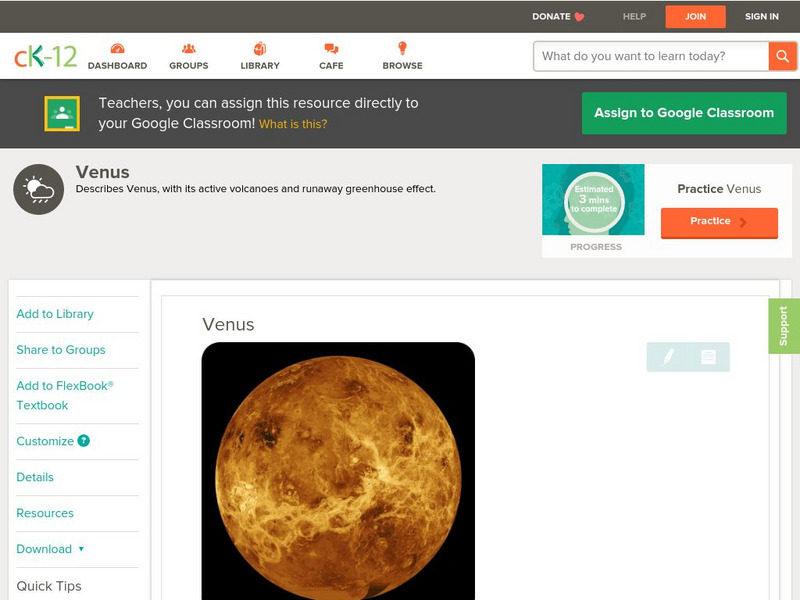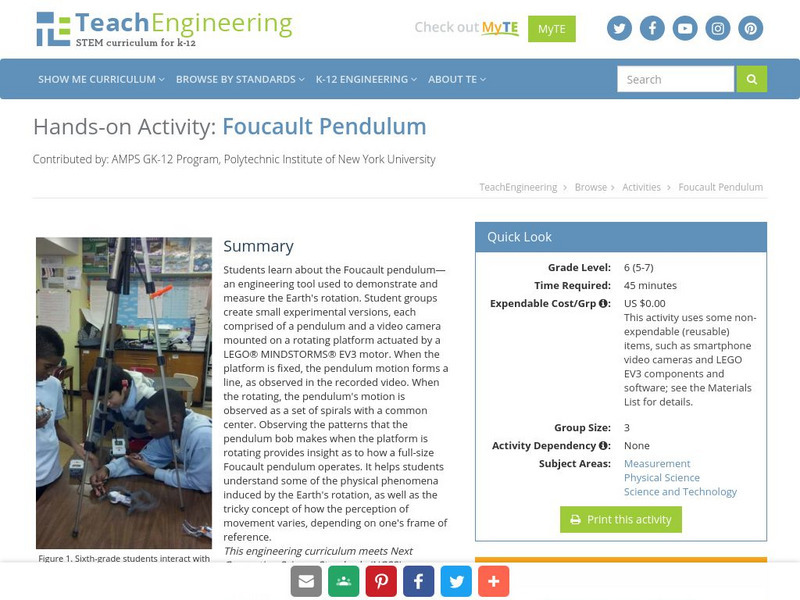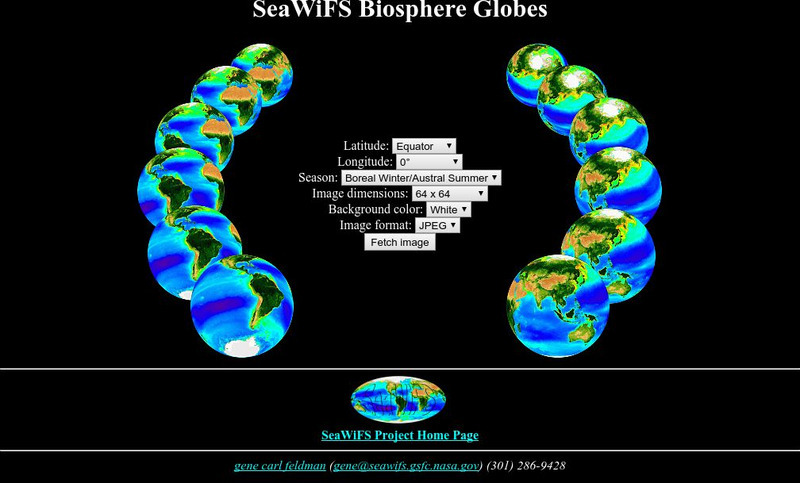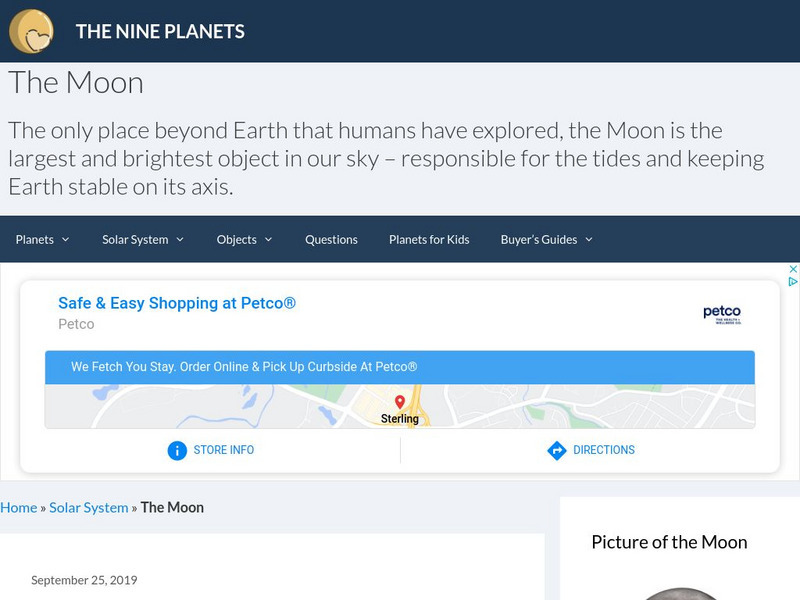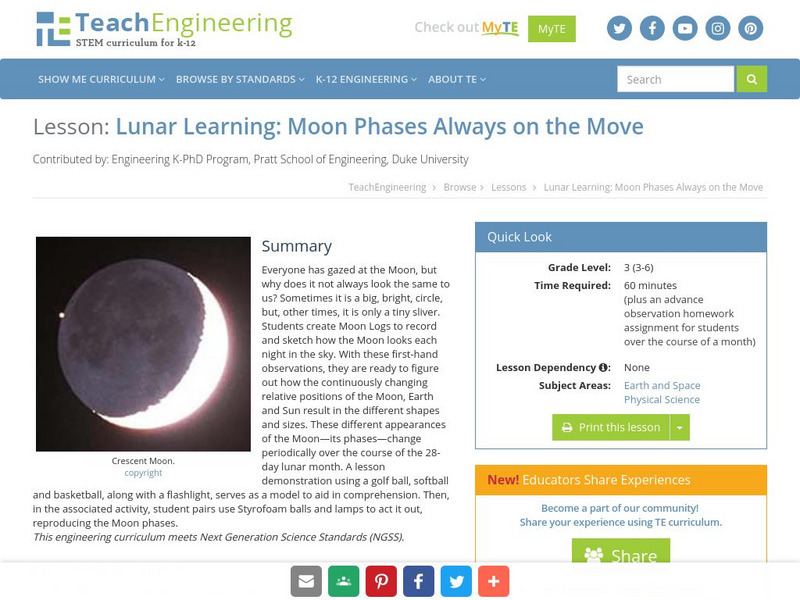McREL International
Mc Rel: Earth's Axis [Pdf]
A worksheet regarding the path of the Sun around the Earth and the Earth's tilt on its axis.
Science Education Resource Center at Carleton College
Serc: Mn Step: The Earth and Sky in a 24 Hour Day
An activity where students learn, through modeling and demonstration, about the relative sizes of the Earth and Sun, the distance between them, and how the Earth rotates in a 24-hour period.
Other
Review Game Zone: Earth/environmental Science Ncfe Review Part 1
Take this 10 multiple choice question quiz on earth and environmental science.
ClassFlow
Class Flow: Earth, Sun and Moon
[Free Registration/Login Required] In this unit children learn about the shapes and relative sizes of the Earth, Sun and Moon. Using models they learn how the three bodies move relative to each other and how these movements relate to...
Khan Academy
Khan Academy: Cosmology and Astronomy: Season Simulator
This season simulator takes Earth through an entire year cycle allowing the viewer to observe the tilt of the Earth and the intensity of the sunlight.
TED Talks
Ted: Ted Ed: What on Earth Is Spin?
Why is the spinning motion so special? Brian Jones details the dizzyingly wide array of ways that spinning affects our lives. [3:57]
CK-12 Foundation
Ck 12: Earth Science: Uranus
[Free Registration/Login may be required to access all resource tools.] Describes the features of Uranus.
CK-12 Foundation
Ck 12: Earth Science: Uranus
[Free Registration/Login may be required to access all resource tools.] Describes the features of Uranus.
CK-12 Foundation
Ck 12: Earth Science: Venus
[Free Registration/Login may be required to access all resource tools.] Learn about the distinctive features of the planet Venus.
TeachEngineering
Teach Engineering: Foucault Pendulum
Students learn about the Foucault pendulum, an engineering tool used to demonstrate and measure the Earth's rotation. Student groups then create small experimental versions, each comprised of a pendulum and a video camera mounted on a...
Utah Education Network
Uen: A Moon With a View
Understand the rotation of the earth and the appearance of movement of other bodies in the sky.
Harvard University
Harvard University: Eye on the Sky, Feet on the Ground
An ebook filled with information and classroom activities covering several astrological topics such as the Earth's rotation and the solar system. Many tips and teaching tools are available to aid in discovering what the sky has to offer.
Utah Education Network
Uen: The Night Sky
Learn about the rotation of the earth, the movement of the moon, and the position of the sun.
Utah Education Network
Uen: Reasons for the Seasons
Lesson plan addresses misconceptions about seasonal changes and Earth's orbit through a pre-lesson survey and follow-up experiments to scientifically study the answers to questions found in the survey. Includes great teacher background...
NASA
Nasa: Sea Wi Fs Biosphere Globes
This interactive globe allows you to get any view of the earth by entering latitude, longitude and season criteria.
American Geosciences Institute
American Geosciences Institute: Astronomy
Eight hands-on lessons module in which students explore the characteristics of planet Earth, its moons, the sun, the solar system, planets, and the difference between science fact and science fiction.
NASA
Nasa: Sci Jinks: What's a Solstice?
Find out how the Earth's tilted axis affects the seasons on the Earth.
Nine Planets
The Nine Planets: The Moon
Explore the mythology, structure, observational history, gravitational force, and orbit of Earth's Moon.
Annenberg Foundation
Annenberg Learner: Moon Journal Activity
Students use the process of journaling to make discoveries about the moon. This activity involves having students write observations about the moon in a journal. Using their observations they go to an online resource and choose...
NASA
Nasa: The Sun
An introduction to the Sun including its size and distance from the Earth, sunspots, flares and coronal mass ejections.
Texas Education Agency
Texas Gateway: Gyroscopic Effects: Vector Aspects of Angular Momentum
By the end of this section, you will be able to describe the right-hand rule to find the direction of angular velocity, momentum, and torque; explain the gyroscopic effect; and study how Earth acts like a gigantic gyroscope.
Georgia Department of Education
Ga Virtual Learning: The Moon
In this interactive tutorial students will explore what it is like on the Moon. Learn why the shape of the Moon seem to change and also about lunar eclipses. Discover why the tide changes twice a day and explore how the cycle of the Moon...
TeachEngineering
Teach Engineering: Lunar Learning
Why does the Moon not always look the same to us? Sometimes it is a big, bright, circle, but, other times, it is only a tiny sliver, if we can see it at all. The different shapes and sizes of the slivers of the Moon are referred to as...
PBS
Pbs Learning Media: Meteor Showers
This video segment adapted from NASA uses animation to illustrate the properties of meteor showers and comets. Included is are visualizations of a comet's tail and of Earth passing through a debris stream left behind by meteoroids.
Other popular searches
- Earth's Rotation
- Earth Rotation
- Earths Rotation
- Earth Rotation Revolution
- The Earth's Rotation
- Earth Rotation Seasons
- Earth's Rotation Craft
- Earth Rotation Around Sun
- Earth's Rotation Seasons
- Earth's Rotation Orbit
- Earth's Rotation and Seasons
- Earth's Rotation on Axis


![Mc Rel: Earth's Axis [Pdf] Unknown Type Mc Rel: Earth's Axis [Pdf] Unknown Type](https://d15y2dacu3jp90.cloudfront.net/images/attachment_defaults/resource/large/FPO-knovation.png)


